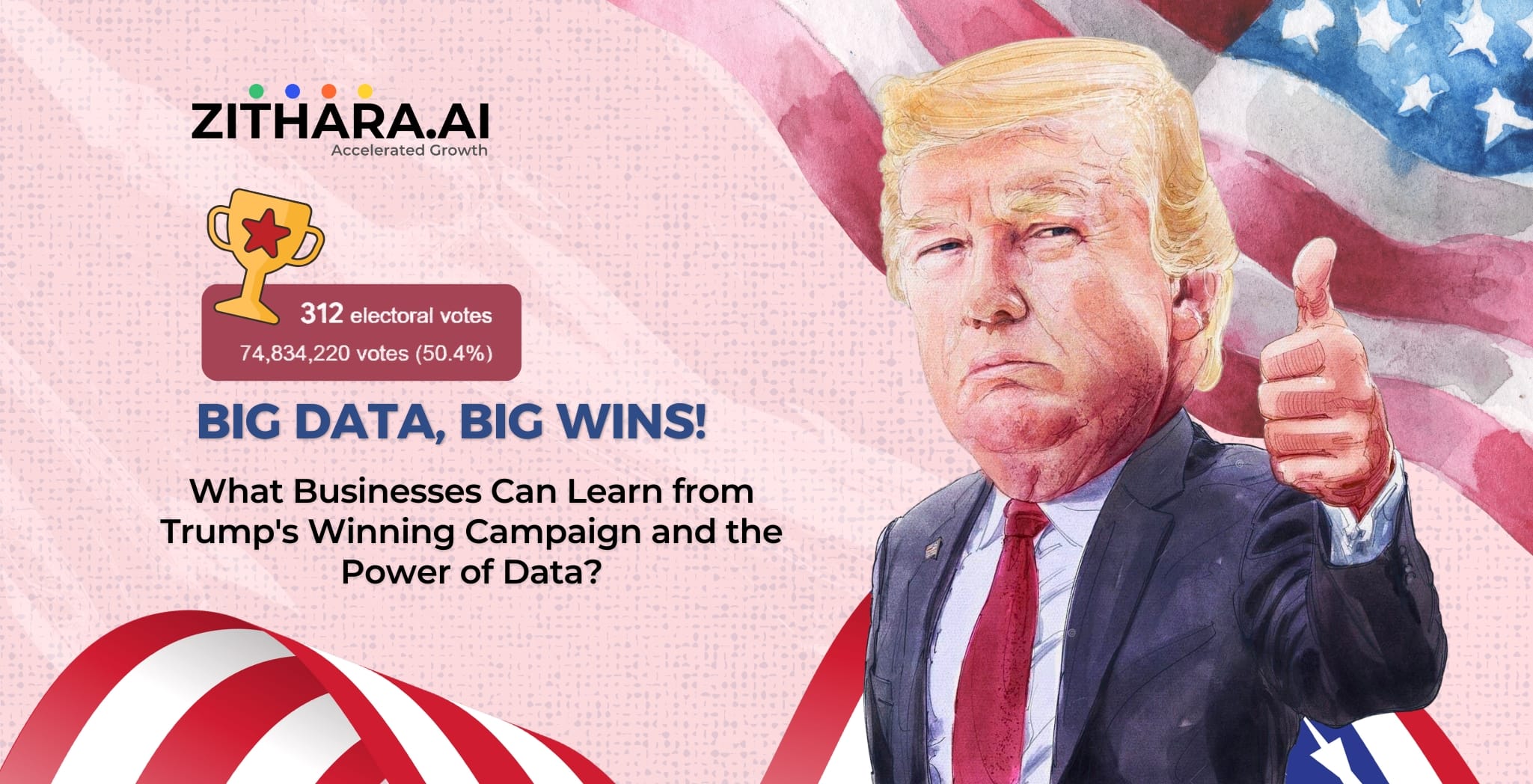Donald Trump’s recent campaign success highlights something we often overlook: the incredible power of data in marketing and strategy. By leveraging advanced data analytics, CRM systems, and AI, his team didn’t just communicate with voters—they built meaningful engagement and loyalty. While these tactics were used in a political setting, they hold valuable lessons for businesses, brands, and retailers eager to deepen customer relationships, optimize marketing, and achieve sustained growth. Let’s break down how data made a difference and how you can apply these insights to your business.

1. Data-Driven Audience Segmentation and Personalization
Lesson from Trump’s Campaign:
They used data to understand voter demographics and social media engagements. They tailored messages for each segment based on their specific values and interests. This hyper-targeted approach maximized impact and resource efficiency.
Takeaway for Businesses:
Brands can take a similar approach by segmenting their audience based on demographics, purchase history, and engagement patterns. CRM like Zithara.AI can help analyze customer journeys and deliver personalized marketing campaigns. Whether it’s offering exclusive deals to loyal customers or customizing product recommendations, segmentation ensures your efforts resonate more deeply, driving engagement and loyalty.
2. Real-Time Interaction and Customer Support Through AI
Lesson from Trump’s Campaign:
They used AI-driven chatbots to handle real-time interactions and maintain engagement on social media, a tactic that kept supporters informed and provided quick responses to inquiries.
Takeaway for Businesses:
AI-powered chatbots can revolutionize how you interact with customers. Platforms like Zithara.AI can automate real-time customer support using AI-powered chatbots. These bots can provide instant answers, suggest products, and handle inquiries 24/7, creating a seamless customer experience that keeps audiences engaged and satisfied.
3. Leveraging Data Analytics to Optimize Strategy
Lesson from Trump’s Campaign:
Data analytics allowed Trump’s campaign to focus on what mattered most. By using data analytics, they identified key swing states and adjusted resources to maximize impact. This ability to adapt quickly to real-time feedback was a cornerstone of their strategy.
Takeaway for Businesses:
Data analytics enables brands to stay agile by optimizing their marketing strategies. It identifies top-selling products, tracks customer preferences, and measures the effectiveness of campaigns. Platforms like Zithara.AI provide businesses with access to these insights, allowing them to concentrate their resources on high-return areas and adapt their strategies based on data-driven results.

4. Building Loyalty with Exclusive Offers and Personalized Experiences
Lesson from Trump’s Campaign:
Trump’s team kept the enthusiasm alive by rewarding loyal supporters with special updates and exclusive invitations. This approach helped strengthen their sense of loyalty and kept everyone feeling motivated and connected!
Takeaway for Businesses:
Businesses can utilize CRM tools to design personalized loyalty programs. This can include sending special offers, early product previews, or VIP invitations to valued customers. Platforms like Zithara.AI simplify the process of delivering these rewards based on customer history, which helps foster loyalty and ensures that customers feel valued.
Conclusion: The Power of Data for Lasting Success
Donald Trump’s campaign is a powerful example of how data-driven customer relationship management (CRM) strategies can transform audience engagement. By leveraging data analytics and CRM tools, the campaign personalized outreach, strengthened supporter connections, and turned passive followers into active advocates. This highlights the potential of CRM to create targeted, meaningful interactions that drive loyalty and action.
For brands, the lesson is clear: tools like Zithara.AI can revolutionize customer engagement by personalizing interactions, providing real-time support, and analyzing behavior to anticipate needs. In today’s competitive market, a well-executed CRM strategy can be the difference between a one-time buyer and a lifelong customer, making data-driven engagement essential for achieving lasting success.
